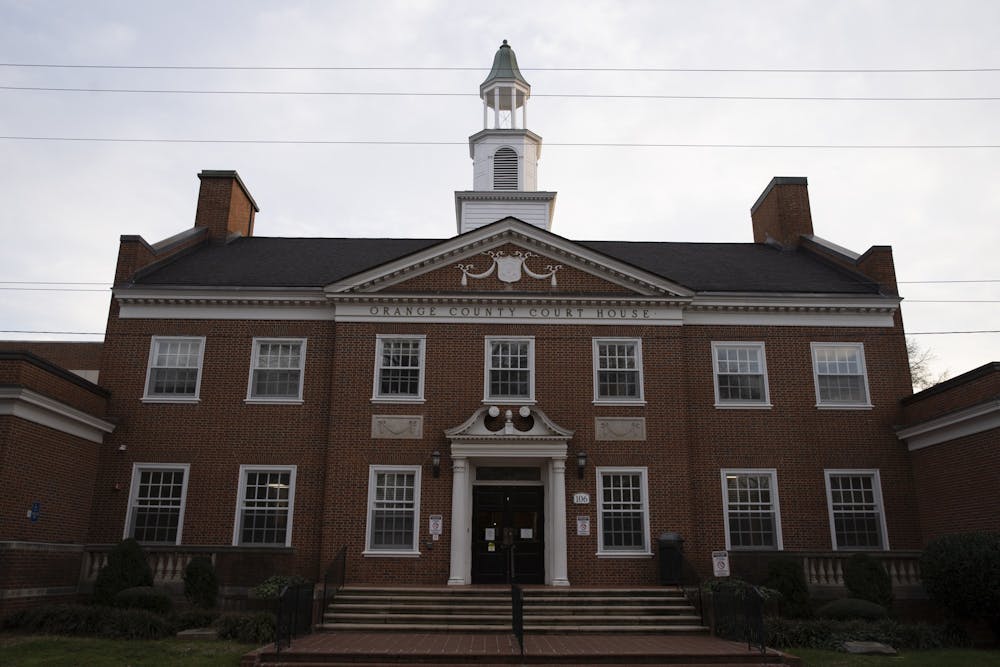In a Jan. 27 report, the NAACP Legal Defense and Educational Fund’s Thurgood Marshall Institute found that pretrial incarceration disproportionately affects Black and Latinx people who face serious health, social and economic costs while in jail.
Compared to white defendants, Black defendants are more likely to be incarcerated before trial and are less likely to be released while awaiting trial for a felony offense.
“We’re in a society where people do have biases, some are implicit, some are very overt,” Price said. “There’s a lot more steeped into the whole criminal justice system.”
Orange County’s new policy
Orange County’s reform efforts, led by Baddour and Cabe in cooperation with a Pretrial Reform Work Group, have undergone years of consideration and refinement.
“It reflects work that was started as far back as 2019 and incorporates reforms that were first implemented in late 2020 and early 2021,” Smith said in an interview. “The judges saw the empirical results and decided to move forward in terms of incorporating them into their final bond policy.”
Furthermore, cooperation with the work group was intended to ensure that various perspectives were heard and accounted for in the new policy.
In an email, Baddour said the Pretrial Reform Work Group analyzed evidence-based solutions and turned them into on-the-ground approaches to implement in Orange County.
“I thought the group was exceptionally diverse, in that we included — and listened to — judges, defense attorneys, public defenders, county commissioners, pretrial services and others,” he said.
The policy incorporates two major reforms proposed by the group: a risk-assessment tool to determine potential risks the defendants pose to the community, and relaxed considerations for first-time failures to arrive in court for certain offenders.
Notably, the new policy establishes a preference for non-monetary conditions of release, with judges instructed to consider a defendant’s risk score provided by the new tool when setting bail.
Smith and the UNC Criminal Justice Innovation Lab have also worked with Baddour and Cabe throughout the process.
To get the day's news and headlines in your inbox each morning, sign up for our email newsletters.
A November evaluation report from the lab found that implementation of the decision-making tool was successful and that secured bail bonds — bonds that must be paid prior to release — were not issued in 72 percent of all cases.
In addition, the changes have sought to address inequalities across socioeconomic lines.
“The policies and practices adopted reduce the likelihood of implicit (or even explicit) bias by creating tools that apply to every individual, regardless of their race, ethnicity, gender or income level,” Caitlin Fenhagen, criminal justice resource director for Orange County, said in an email.
Fenhagen said the policy is a step in the right direction for addressing inequalities in the criminal justice system for people of color and those with few financial resources.
Future of criminal justice in Orange County
With the new policy in place, Carrboro Police Chief Chris Atack said the justice system must work to address how it can unfairly affect some members of the community.
“When you look at the data, in terms of what happens to folks of lesser means when they get involved in the criminal justice system, the question is, 'Are we creating our own problems?'” Atack said.
Additionally, Price said the justice system has more to do.
“I think this is a step in the right direction, but I would have to say that we still have a ways to go,” Price said. “Racism, discrimination and prejudice are so embedded in our society — we must recognize these issues so we can begin to address them.”
@HarrisonGGummel
@DTHCityState | city@dailytarheel.com




